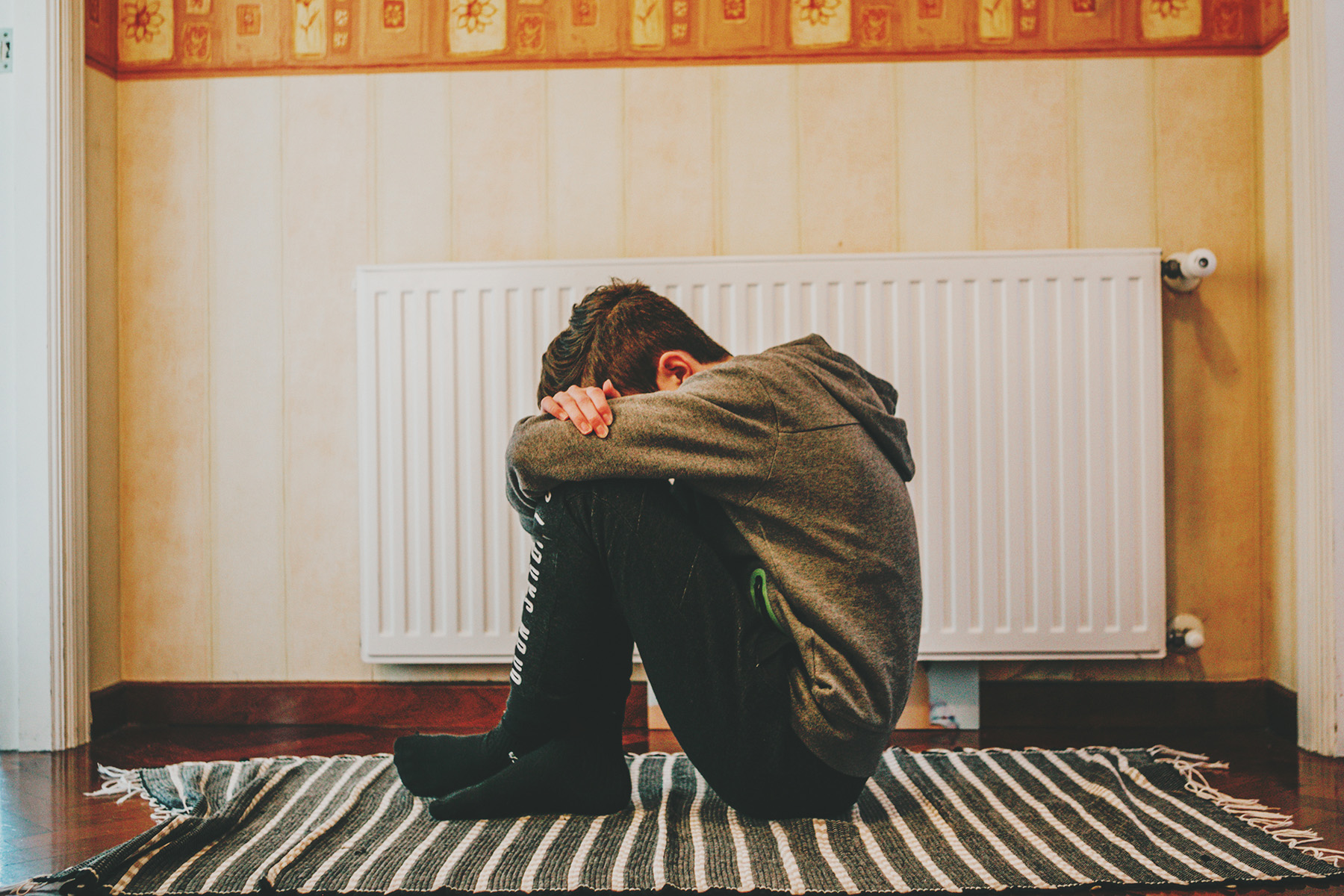In Spain, one in 10 people over the age of 15 has been diagnosed with a mental health problem. Anxiety, depression, and insomnia are among the most common conditions. Fortunately, if you are living and working in the country, you will have access to free state Spanish healthcare, which includes mental health services. However, there can be regional variations in the services available as well as long waiting times.
To help you understand how to access mental health services in Spain, this guide includes the following information:
- An overview of mental health in Spain
- Spanish mental healthcare services
- How to access mental healthcare services
- Insurance for mental healthcare
- Psychologists, psychiatrists, and therapists
- Drug and alcohol addiction services
- Spanish health services dealing with eating disorders
- Mental healthcare for people with severe problems
- Mental health services in Spain for children and young people
- Mental healthcare for special groups
- Prevention and support for mental health in Spain
- Emergency support and mental health helplines in Spain
- Useful resources
Cigna Global
Want access to the best private medical services in Spain? Speak to the healthcare professionals at Cigna Global today and find a policy that’s right for you. Take advantage of their global network of doctors, specialists, therapists and more with coverage tailor-made for you and your family. If you’re starting a new life in Spain, get peace of mind with Cigna Global.
An overview of mental health in Spain
According to the World Economic Forum’s Global Competitiveness Report 2019, Spain has the best healthcare in the world. Furthermore, 75.5% of Spanish people age 15 and older rate their health as good. Together with Italy, Spain has the highest life expectancy in the EU, reaching, on average, an age of 83 in 2018.

Despite this, mental health issues continue to rise across the country. Naturally, the COVID-19 pandemic (link in Spanish) has had a negative impact on the psychological well-being of citizens in Spain. Indeed, 22% of the Spanish population suffered from at least one mental health condition during 2020. And almost half of the population (48%) thought the situation would have a negative long-term impact on their mental health. Moreover, 14% reported that they had experienced anxiety, while 10% stated that had suffered from depression. As a result, the daily use of antidepressants and anti-anxiety drugs within the country is on the rise.
The stigma surrounding mental health
The stigma surrounding mental illness remains an issue in Spain and this can make people’s conditions worse or delay or prevent them from seeking help. Sadly, it seems that the more serious the disorder or problem, the greater the stigma. There is also a perception that those in the lower-middle and working classes struggle more with mental health. As a result of these contributing factors, many primary care physicians do not catch mental health problems early enough.

The Ministry of Health estimates that 7.6 people commit suicide per 100,000 in Spain, which is below the EU average of 11 per 100,000. However, some people believe that the rates are underreported. Suicide is the primary cause of unnatural deaths in the country; it accounts for twice as many deaths as those caused by road traffic accidents.
Unfortunately, there is currently no national program in Spain to prevent suicide, and it remains a taboo subject. General underinvestment in mental health in the country also remains a problem, and for many years, the Spanish National Healthcare System (Instituto Nacional de la Salud – INSALUD) has prioritized physical health over mental health. As a result, funding for mental health services falls short of European standards, accounting for just 0.6% of the country’s GDP.
Spanish mental healthcare services
The Ministry of Health (Ministerio de Sanidad) oversees the provision of mental healthcare in Spain and focuses mostly on policy and budget. The Confederation of Mental Health in Spain (Confederación de Salud Mental en España) works closely with the government to provide equal access to different mental healthcare providers throughout the country.
As healthcare in Spain is decentralized, there are significant territorial inequalities when it comes to accessing mental healthcare throughout the country. Therefore, where you live is likely to make a difference to the quality of provision available.
It is important to be aware that if you choose to use free state healthcare as an expat, it will not cover all treatments, such as psychotherapy. For this reason, many people opt to pay for private health insurance which provides wider access to treatments and facilities. You can read more about this further down the guide.
You can also find out how mental health services fit into the bigger picture by reading our overview of the healthcare system in Spain.
How to access mental healthcare services
If you are living and working in Spain, you are entitled to the same free state healthcare as a Spanish citizen. Any dependents are also covered if they live in Spain. If you are an EU/EFTA resident, you can use the European Health Insurance Card (EHIC) to receive the same medical treatment as a Spanish national. However, free healthcare will not cover all treatments.

If you need to access mental healthcare services in Spain, you need to follow three steps. The first step is to visit your GP (médico de cabecera) who can prescribe drugs if necessary. The second step is to seek a referral to other doctors, or for specialist treatment (atención secundaria o especializada), if required. Most of this is provided by community health centers. And the third step involves being treated for serious mental health problems in psychiatric hospitals, daycare centers, and rehabilitation centers.
You can find out what services might be available in your area of Spain by searching the Directory of Mental Health Associations (Directorio de Asociaciones de Salud Mental). In addition, sites such as SaludOnNet can help you compare different private providers.
Insurance for mental healthcare
Expats can access free basic state healthcare by registering for Spanish social security (Dirección General de la Tesorería General de la Seguridad Social or TGSS) and making contributions. Social security payments fund the system; meaning that most residents don’t take out additional private cover to access standard health services. In fact, only around 21% of Spaniards have private health insurance.
Many expats, on the other hand, opt to pay for private health insurance, as it enables them to access a wider range of medical professionals and significantly reduces waiting times. Moreover, if you have private medical cover, you won’t need to seek a referral from a GP beforehand and can simply choose a specialist directly. You can also choose your own therapist (who speaks English) and have certain medical procedures that state healthcare does not provide.
If you need to go to a hospital for a mental health problem in Spain, you can also choose a private one that is fully equipped with modern technology. And in this case, you will usually be given your own room. Another advantage of having private medical cover is being able to seek a second opinion about your condition. The main benefit, however, is that you can substantially reduce waiting times, especially when it comes to seeing a specialist.
How to choose a health insurance provider
Naturally, the rates for private health insurance vary depending on the type of cover you choose. However, you can get free quotes on our health insurance page.
Some of the largest private health insurance companies in Spain include:
For more information, read our guide to health insurance in Spain.
Psychologists, psychiatrists, and therapists
In 2018, there were 10.9 psychiatrists per 100,000 inhabitants in Spain. This is one of the lowest rates in Europe and is roughly on par with Bulgaria. By contrast, Switzerland has 52.3 psychiatrists per 100,000. Family doctors can refer people to psychologists or psychiatrists in Spain. Notably, a psychologist can offer therapy to people with mental health problems or disorders, but only a psychiatrist can prescribe drugs.

While there are many psychologists, psychiatrists, and therapists available throughout Spain, state healthcare will not cover all of them. Furthermore, there is no guarantee that they will be able to speak English. You could also be waiting as long as six months to have a consultation.
For this reason, many expats choose to take our private health insurance to cover mental health costs in Spain, as this can substantially reduce waiting times and grant them access to a wider range of professionals. With private health insurance, you don’t need a referral to see a mental health professional of your choice; you can simply search for one in your area using the following directories:
- English-Speaking Healthcare Association (ESHA) – a directory of psychiatrists who can treat you in English
- The National Association of Clinical Psychologists and Residents (ANPIR) – a directory of psychologists (in Spanish)
- International Therapist Directory – a global network of therapists working in many parts of the world; you can search by location
On average, a one-hour session with a therapist or psychologist costs about €75, but this price can fluctuate by location. Some private healthcare plans will cover these sessions, or you might be asked for a copayment. What is covered will largely depend on the plan you choose and the provider.
Drug and alcohol addiction services
The number of Spaniards who drink habitually has been decreasing over the last 15 years. According to the Ministry of Health (report in Spanish), 46% of men and 24% of women (aged 15 and older) reported drinking regularly in 2020. That said, only 0.3% claimed to drink heavily on a daily basis. Opioid abuse, on the other hand, is on the rise.

For those who need treatment for substance abuse, there are public and private options available in Spain; both inpatient and outpatient. However, if you choose to go through the public healthcare system, you will likely face longer waiting times and will need to go through your GP first.
By contrast, private treatment centers offer reduced waiting times and give you more choice when it comes to treatment and care. That said, this is an expensive option if you don’t have private health insurance to cover at least some of the costs.
Some of the main substance abuse services in Spain include:
- Ministerio de Sanidad (Ministry of Health) – provides information, links, and advice for those struggling with substance abuse problems (in Spanish)
- Alcohólicos Anónimos (Alcoholics Anonymous) – has support groups all over the country
- Fundación de Ayuda contra la Drogadicción (drug addiction support) – provides a support hotline (900 161 515) and consultation service
- Narcóticos Anónimos (Narcotics Anonymous) – offers a support hotline (952 858 522) and online support (in Spanish)
Spanish health services dealing with eating disorders
Like in other Western countries, there has been a rise in eating disorders in Spain in recent years. This is particularly acute among young women and teenagers. In recognition of the problem, schools across the country have implemented prevention programs in order to raise awareness. Healthcare professionals are also more aware of the problem. Meanwhile, the Association Against Anorexia and Bulimia (ACAB) offers an initial consultation with free advice and support.

If you require help for an eating disorder and want to seek support through the public healthcare system in Spain, you will first need to see a family doctor. They will then refer you to a specialist. Treatment typically involves a team of professionals with different areas of expertise.
Just bear in mind that you could be waiting several weeks to be seen unless you have private health insurance. As previously mentioned, there are many treatment options available for those who have private health insurance; however, some of them can be costly.
Mental healthcare for people with severe problems
According to estimates (in Spanish), one in four Spaniards has a long-term mental health problem. In most cases, a specialist will refer a patient to a psychiatric hospital or daycare center, but there is a shortage of beds. In fact, Spain has approximately 45 psychiatric care beds per 100,000 patients, which is lower than most EU member states.
Once admitted to a hospital, a psychiatrist will decide on the best treatment, when to discharge, and what ongoing care might be necessary. Notably, in Spain, a judge has to order an involuntary admission to a hospital.
In the event of being incapacitated or unable to make decisions, though, you can make a plan. Indeed, the advance healthcare directive (declaración de voluntad anticipada) allows individuals to take more control of their treatment in mental health settings. That said, it is worth noting that many healthcare professionals in Spain are not familiar with the directive. Moreover, it often doesn’t have an impact on healthcare decisions.
Mental health services in Spain for children and young people
If you have dependents living with you in Spain, they will also be eligible for public healthcare. This includes free pediatric and dental care until the age of 15. Beyond this, children with ongoing mental health illnesses can receive extended free healthcare. However, treatment is unevenly distributed across Spain and will largely depend on where you live.

Your family pediatrician will give you a referral to see a specialist who can help with a specific problem or diagnosis. However, again, this can take several weeks. That said, you can substantially reduce the waiting time if you have private health insurance or decide to pay out of pocket.
Hospitals can offer inpatient or outpatient care, depending on the severity of the illness. However, state healthcare will not cover all treatment, therapists, or counselors. Moreover, if you find an independent treatment center for a specific problem, it will incur costs.
Interestingly, there is a movement in Spain towards recognizing that schools (link in Spanish) have a role to play in preventing mental health problems such as anorexia and bulimia. There is also a growing awareness of these disorders throughout the country.
Mental healthcare for special groups
There are various organizations that specifically support women in Spain. These range from helping victims of sexual abuse and those going through a difficult divorce. The Fundacion de Mujeres en España (Foundation for Women in Spain) provides a list of resources (in Spanish) that can help.
If you have a disability, the Servicio de Información sobre Discapacidad – SID (Service of Information for the Disabled) provides a number of resources and a list of organizations (in Spanish) that offer support.
Prevention and support for mental health in Spain
Prevention is difficult in a country where mental health services are underresourced and underfunded. However, there is a movement toward using physical exercise as one prevention method (link in Spanish) and promoting a healthy lifestyle nationally.
For instance, the Confederación Salud Mental España (Confederation for Mental Health in Spain) promotes good health and wellbeing and aims to eradicate stigmas. You can get involved by checking its events page and looking at the calendars of its regional branches.

The Ministry of Health has a healthy lifestyle section (also in Spanish), which offers information about physical activity, nutrition, and more.
Meanwhile, the city of Madrid has a portal that aims to prevent suicide. The Ayuda Mutua contra Fobia Social y Trastornos de Ansiedad – AMTAES (the Spanish Association for Mutual Help against Phobia and Anxiety Disorders) also offers mutual help groups (Grupos de Ayuda Mutual) that provide support to people going through a similar problem. Plena inclusión also helps people with intellectual or developmental disabilities and their families and suggests ways to get involved.
Emergency support and mental health helplines in Spain
The pan-European number to call in an emergency is 112. You will then be redirected to the right service for your situation.
Here are some of the main emergency support lines in Spain:
- Samaritans in Spain – an English-language helpline that offers free support by calling 900 525 100 or visiting the website
- Suicide, crisis, and support line (El Teléfono de la Esperanza) – offers support when you call the hotline 902 500 002 or visit the website
You can find a full list of emergency numbers in Spain here.
Useful resources
- Ministry of Health (Ministerio de Sanidad) – provides information about mental health services and strategies
- Confederation of Mental Health in Spain (Confederación de Salud Mental en España) – a directory of mental health providers by location










